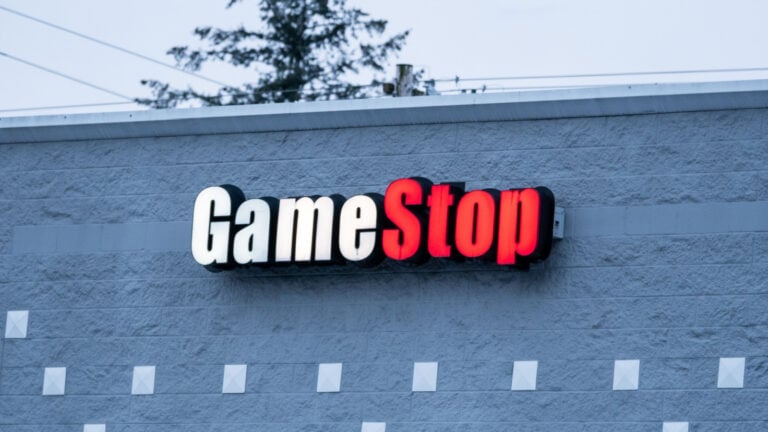GameStop (NYSE:GME) stock has regained investor attention despite underlying financial vulnerabilities. Q1 2024 revenue dropped 29% to $881.8 million, resulting in a $32.3 million operating loss. Digital gaming posed a challenge to GameStop’s physical sales model.
Despite a temporary stock price increase, the company’s financial struggles and market erosion persist amid inflated valuation multiples.
GameStop in 2024 is flashy but volatile. Sustainable wealth beats risky quick gains.
Before hoarding some GME stock, I think now’s the time to consider if its recent run is overdone, and whether this stock could have much more downside from here.
GME Stock Has Been on the Downtrend
GameStop’s GME shares saw volatility amid its transformation. CEO Ryan Cohen prioritized cost cuts, retail streamlining, and bolstering the balance sheet at the shareholder meeting.
GameStop is exploring a transformative proposal from “The Bitcoin Therapist” suggesting a Bitcoin standard adoption via a $5 billion share issuance.
Recently, GameStop filed with the SEC for an offering program, selling 75 million shares after a prior sale raised $933.4 million. They are diversifying into digital assets like Bitcoin.
Cohen hinted at potential further store closures in GameStop’s future plans for a streamlined retail network.
He emphasized a commitment to long-term shareholder value without making speculative promises.
After Monday’s meeting. GME shares fell 12%. The shareholder’s meeting also got delayed due to technical problems, adding more frustration for investors.
According to GME’s general counsel Mark Robinson, the company took advantage of the market rally by selling over 2,200 shares.
This made the company earn an extra $58,000. As of last week’s trading, GME was at $24, showing a 6.33% decline according to Benzinga Pro.
Financials Are Just Not Doing It
GameStop operates through 4,413 global retail stores and online, dominating in-store video game sales against competitors like Walmart and Best Buy.
Yet, the transition to online and downloadable gaming has diminished GameStop’s revenue potential. Last year, sales were only at $5.2 billion, a 42% decline from 2011.
Although store closures have been happening since 2020, its sales have been constantly hitting $5 billion.
As of May, GameStop held has a $1 billion cash and securities, $15 million in long-term debt, and $400 million in leases. The Roaring Kitty-related surge created a $3 billion buffer for the company, boosting cash reserves to $4 billion.
Despite a 40% drop in Q1 2024 sales, GameStop reduced its quarterly loss to $32.3 million from $50.5 million, with 2023 net sales at $5.2 billion and a $6.7 million net income after a $313 million loss in the previous year.
Don’t Trust the Roaring Kitty
GME stock predictably plunged over 30% following the announcement, cushioned only by the decision to release it on a Friday, when stock markets close for the weekend.
Share prices continued to decline the following week, hitting a low of $18.32 by May 23 before showing slight recovery later in the month.
On June 6, Keith Gill announced an upcoming livestream, causing shares to surge 80% to over $46.
During the livestream, Gill, known for his bullish stance on GameStop, expressed confidence in Ryan Cohen’s leadership amidst controversy from hedge funds like Citron Research.
Amidst these events, Cohen and his team unexpectedly released their quarterly results three days early, on a Friday instead of the planned Tuesday.
The results revealed a first-quarter loss exceeding $32 million, or $0.12 per share, which missed the expected $0.09.
GameStop announced a new stock sale, capitalizing on the price surge triggered by Kitty’s livestream, generating over $2 billion in cash.
GME Stock Remains a Sell
Investors should always prioritize clear investment objectives for optimal returns with manageable risk. GameStop’s weak fundamentals and the volatility induced by Gill’s social-media activities and market manipulation allegations underscore its high risk.
Ultimately, GameStop’s stock will reflect its fundamental health over time, suggesting caution for long-term investment.
On the date of publication, Chris MacDonald did not hold (either directly or indirectly) any positions in the securities mentioned in this article. The opinions expressed in this article are those of the writer, subject to the InvestorPlace.com Publishing Guidelines.

